Boris Johnson’s five flooding failures make Jeremy Corbyn look credible as PM finally visits Doncaster – Tom Richmond
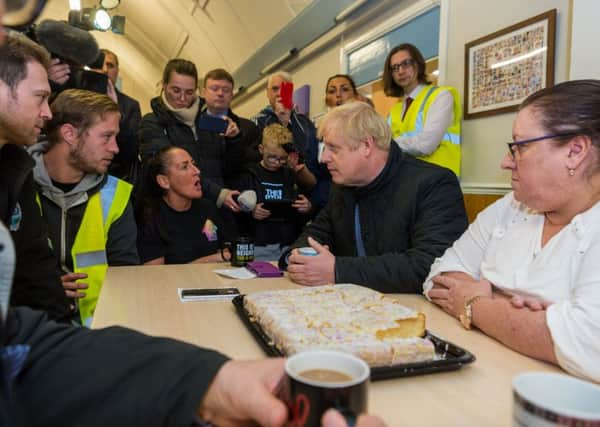

If residents, some of whom also lost everything in the 2007 floods, can’t count on their Prime Minister during a general election campaign when politicians want public support, when can they?
Mr Johnson’s first mistake, as hundreds of families and business owners brace themselves for further rain, was his failure not to order a meeting of Cobra – the Cabinet’s emergency committee – last Friday when roads became rivers as the Don burst its banks.
Advertisement
Hide AdAdvertisement
Hide Ad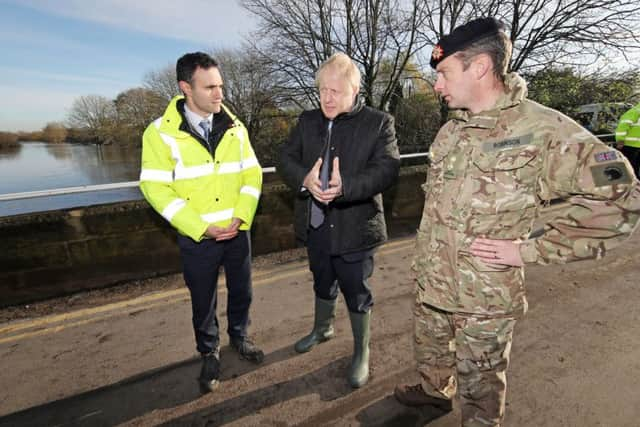

Next was his glibness – this was not “a national emergency” – as he made a perfunctory and pathetic effort, solely for the benefit of the TV cameras, to mop water away from a Peak District shop on Friday night. It is an ‘emergency’ to each and every victim.
Then the hypocrisy when Johnson’s complacency here was compared with his hands-on response, as Mayor of London, to the 2014 floods in the South East. Cobra met daily back then.
Advertisement
Hide AdAdvertisement
Hide Ad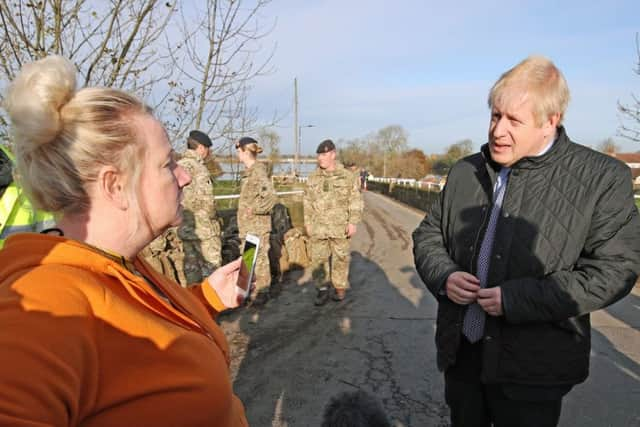

And then the Ministerial vanishing acts. Environment Secretary Theresa Villiers, whose brief includes flooding, is missing in action while Defence Secretary Ben Wallace – who? – only piped up on Tuesday, outside the Cabinet offices, to accuse opponents of electioneering. Do they know where South Yorkshire is?
And, finally, the Tory leader’s decision to hold a Cobra meeting, five days after the first homes were flooded, following a direct challenge by Labour leader Jeremy Corbyn who has made two visits to the affected areas – Johnson only relented after media and political pressure became overwhelming.
Yet the culmination of these five fatal flaws is that Boris Johnson risks making Corbyn, his election rival, look – I used that word advisedly – prime ministerial when Labour candidates in Yorkshire marginals report support ebbing away because of misgivings about their leader.
Advertisement
Hide AdAdvertisement
Hide AdAs details leaked out of the Government’s cobbled together rescue package, and the belated decision to deploy 100 soldiers who were the focus of the PM’s visit, leaders here said Johnson still had little idea about the scale of damage – and public anger – as aides said that he would not answer questions from the regional media. The Tory leader then relented after a heated meeting with local residents who put Johnson straight.
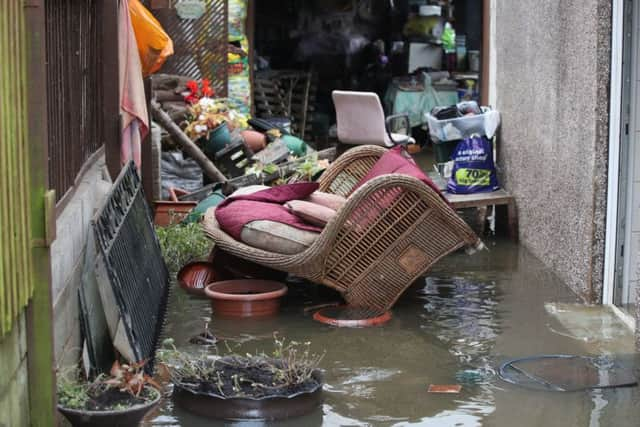

However this is not new. David Cameron, according to the former PM’s memoirs, rues flying off to Africa on an overseas aid visit when parts of his Oxfordshire constituency were under water in 2007.
He soon learned – “politics is also about whatever nature throws at you” – and he was more assertive when floods hit the South West, Thames Valley and the capital in 2014. Then Johnson led London’s response before calling for a full review of the Thames Barrier’s capability to make sure it could protect the capital for the rest of the century.
Yet, when West and North Yorkshire were hit by Boxing Day floods in 2015, Cameron had to be shamed into action by this newspaper – and others – after under-estimating the economic and social cost of the damage. Even now, cities like Leeds are still struggling to persuade Defra to fully fund long-delayed flood defences after Cameron’s government had prioritised spending in the Thames Valley and, yes, parts of Surrey – a county now cited as being the recipient of more favourable political treatment.
Advertisement
Hide AdAdvertisement
Hide AdHowever, as rival politicians argue over spending levels, the priority must be the victims – and all those at risk of future flooding – as the climate becomes more unpredictable.
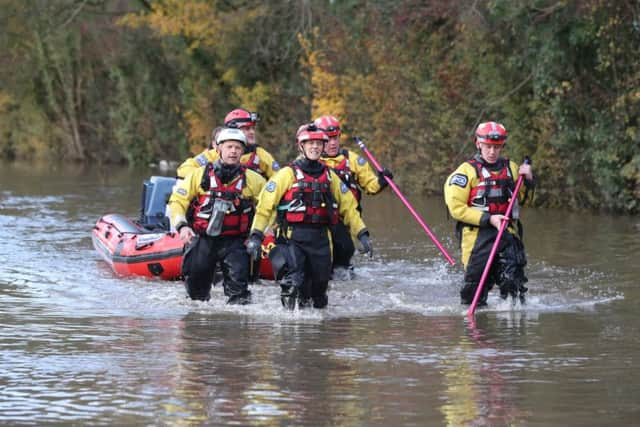

For the Don Valley, supposedly part of the much-vaunted Northern Powerhouse, this means the Government – with local agencies – providing the support on the ground afforded to communities when major employers close. This was already a deprived area before the latest setback – many could not afford insurance or now have invalid policies due to the high risk of flooding.
It also means an urgent review into the Don Valley catchment area – after the second ‘once in a generation’ flood in just 12 years – to reduce the risks in all communities. Are rivers being dredged frequently enough?
And, for the Government, it means setting up a rapid response team that can respond quickly to future incidents. This issue is not going away. A moratorium on the building of new houses on flood plains should be put in place as the first part of an urgent review into Britain’s flood resilience.
Advertisement
Hide AdAdvertisement
Hide AdYet, while it was heartbreaking to see, from the train, Bentley’s abandoned streets last Friday as I tried to grasp the heartache that was being suffered by the evacuated families, I don’t blame Boris Johnson for the floods. I do, however, blame him for his Government’s shamefully slow response – yes, it would have been different in Surrey – and his contempt for the people of South Yorkshire when it is their community resilience which has spared him from even greater political embarrassment.
Tom Richmond is the Comment Editor of The Yorkshire Post. Follow him om Twitter via @OpinionYP.